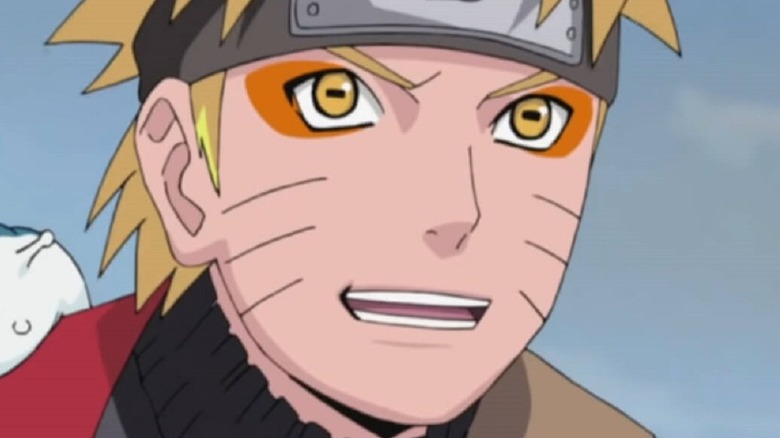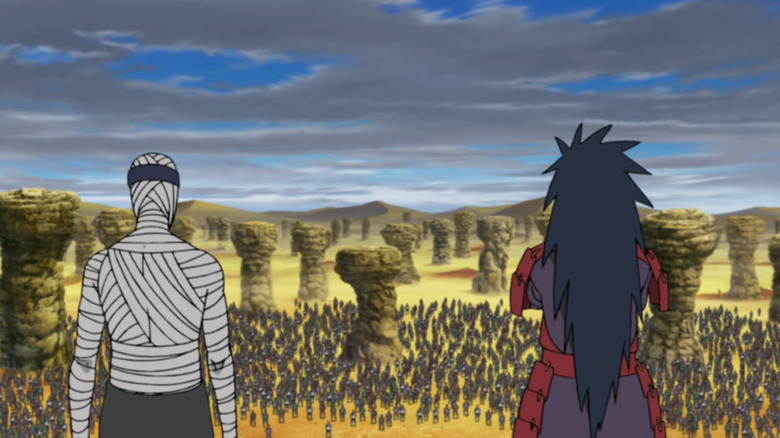Naruto's War Storylines Were A Complex Matter For Masashi Kishimoto
In long-running shonen anime, it is not uncommon for a big War Arc to exist and represent the show's climax. A clash between the forces of good and evil, battling it out to see whose goal and motivation will come out on top. It often also serves to showcase how far the characters have come and in what ways they have grown.
Masashi Kishimoto's "Naruto" is an example of a widely popular manga series that does precisely that. It might very well be one of the longest war arcs in shonen as well, going for over 200 episodes in "Naruto Shippuden," from Episode 262 to Episode 474. Of course, there were wins and losses, like the tragic death of Neji Hyuga, but in the end, the heroes managed to prevail and return to their village.
Some fans may not be aware of how close to home the depiction of war hit Kishimoto. In an interview with Weekly Shonen Jump, the manga creator was asked about his feelings concerning war in general and what kind of challenges he encountered in depicting a large-scale war on the page.
Kishimoto's real-life influences for the War Arc
In Masashi Kishimoto's response to Shonen Jump, he first acknowledged the sheer scale of the war he created, including nearly all the powerful characters in the story thus far — with even the dead briefly resurrecting to fight against the Allied Shinobi Forces. Kishimoto also explained the difficulty in balancing what to show and what to omit from the page.
He revealed that war was difficult to tackle due to his indirect connection to the Second World War. He said, "I grew up in Okayama, which is right next to Hiroshima. My grandparents went through the terror of war, and I know from their stories that the war was built up on people's grudges." Kishimoto also discussed the importance of fabricating a thorough background for the war, as the build-up would determine how believable the entire conflict felt.
"As my grandfather taught me, I believe that 'war is never the right answer,' but I also understand that there will always be war. ... there are certain things that only my generation can tell in a story, and I can tell it from my own perspective. Even though it's fiction, I want to make people feel like there is still hope."
For Kishimoto, both hope and forgiveness were essential themes to include. Hence, no matter how dark the path seemed to get there, the themes shone brightly at the end.

